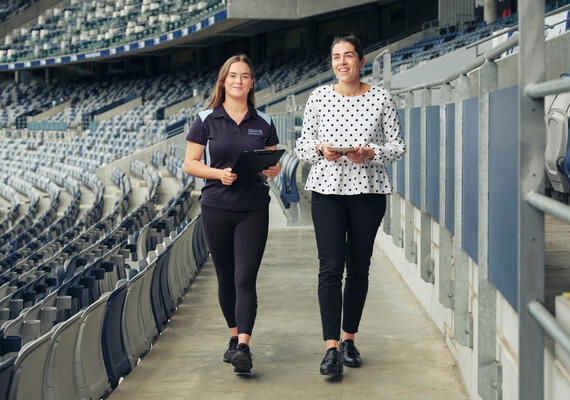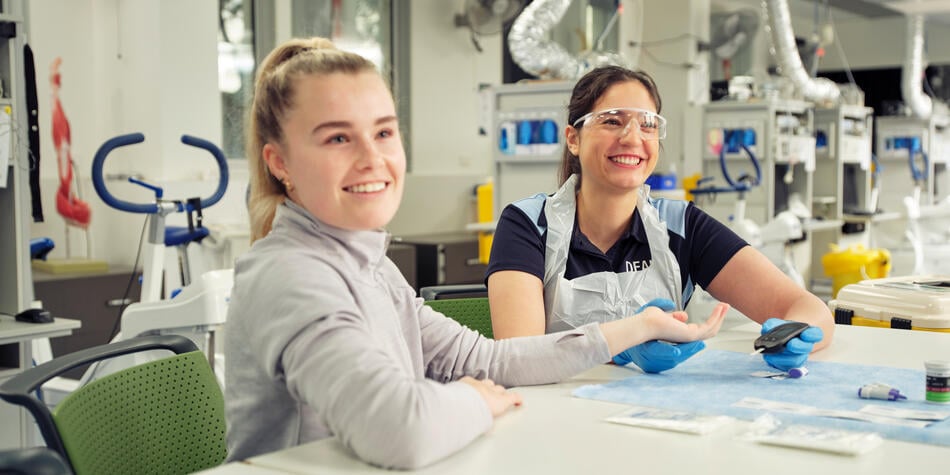
How a Deakin sport placement can lead to a career
Monica credits her third-year sport science placement with the Geelong Cats as a pivotal point in her sport career, where the link between theory from the lecture theatre and the real-world sporting field became clear.
She went on to complete her Honours degree in collaboration with the Geelong Cats and forged a career with the club. She worked with them for nearly 10 seasons as Performance Science Coordinator, Assistant Strength and Conditioning Coach, and Women’s Physical Performance Coordinator – and it all started with a Deakin university student placement.

